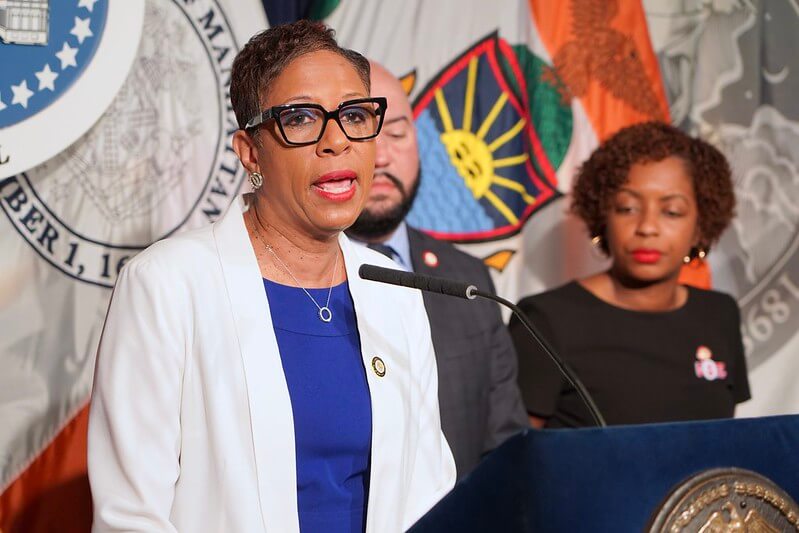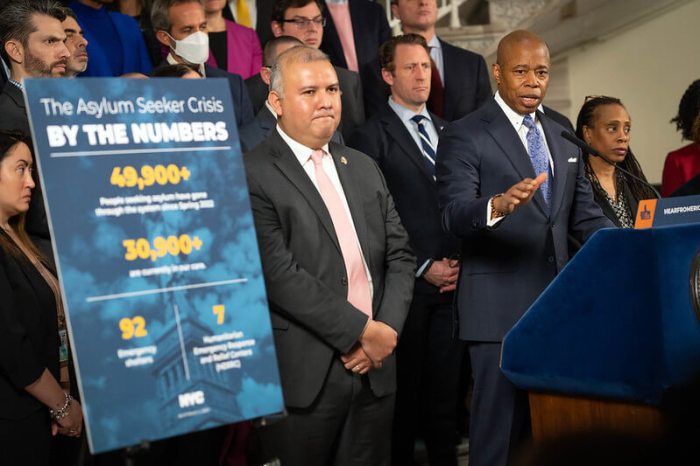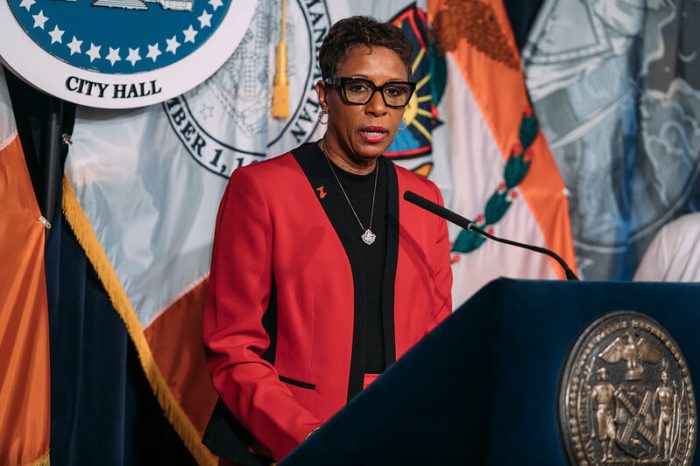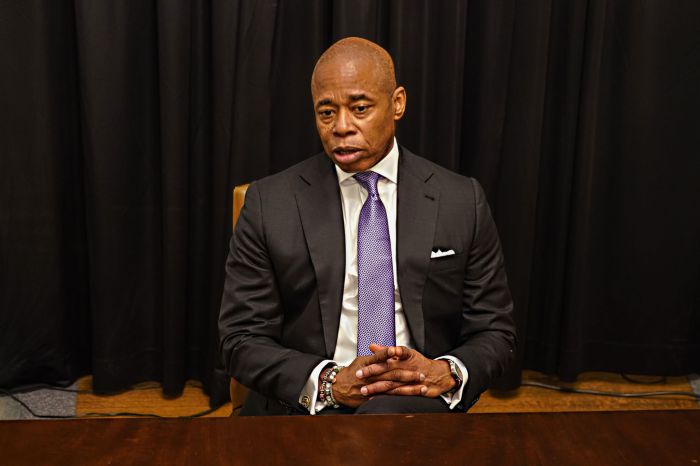On the heels of Mayor Eric Adams dropping his $107 billion executive budget for the coming fiscal year, City Council Speaker Adrienne Adams said Thursday that many city agencies are “hurting” and proposed cuts in the mayor’s plan would continue to cause them to “bleed out.”
Speaker Adams made the remarks regarding the mayor’s latest round of $1.6 billion budget cuts, during an unrelated press conference at City Hall on Thursday afternoon. The trims were made under the latest version of the mayor’s so-called “Program to Eliminate the Gap” (PEG), enacted earlier this month.
“There are various [agencies] right now that are hurting, that have been hurting for a long time and, because of the PEGs that have been implemented, will continue to bleed out and cause a lot of harm to New Yorkers in need,” the speaker told reporters.
The speaker said workers at most city agencies she’s spoken to, whether it be the Department of Homeless Services (DHS) or the Department of Housing Preservation and Development (HPD), have stated they’re already operating with limited resources and further budget cuts would only make life worse for average New Yorkers.
“As far as agencies are concerned, you could go anywhere from DHS to HPD and beyond,” the speaker said. “And we could speak with any number of workers, as we have in our oversight hearings, to get their take on it as well. And many agencies agree that the work that they do is not sustainable in its current fashion.”
The council’s own budget plan, released earlier this month, called for reversing $1.3 billion of the mayor’s cuts made under his two previous PEGs.
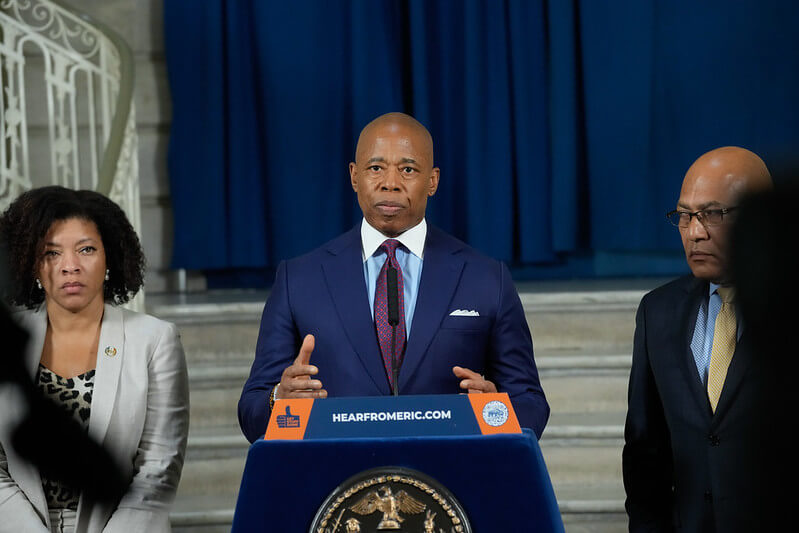
The most recent cuts, which came after two other rounds of PEGs, required most city agencies to trim their budgets by 4%, and some by 3%.
Yet, when rolling out his spending plan on Wednesday, the mayor decided to completely exempt the city’s three public library systems — the New York, Brooklyn and Queens Public Libraries — and its Cultural Affairs Department from the most recent PEG. He also reduced the size of the cut to several other agencies including the FDNY, Department of Sanitation (DSNY), Human Resources Administration (HRA) and the Department of Homeless Services (DHS).
The mayor enacted the three PEGs in the name of fiscal prudence as the city is facing a projected $4.3 billion tab for managing the migrant crisis through June 30, 2024, and is required to shell out another $16 billion in coming years following deals it’s reached with the city’s municipal unions. Additionally, he’s said, he’s preparing the city for the possibility of a slowing economy and a recession.
During his budget presentation the mayor said he understands that every city agency could make a case for why their budgets shouldn’t be cut, but the city is at a moment where hard decisions have to be made.
“We are at a Maslow’s hierarchy of needs moment,” the mayor said during his budget presentation on Wednesday. “Food, shelter, clothing. That’s what we are. And everyone that’s saying just spend, spend, spend, we would love to. We must ensure the continuation of the economic stability of the city.”
The mayor has insisted that none of the belt-tightening measures he’s implemented so far have resulted in layoffs or reductions to essential city services.
One area where the speaker and mayor are aligned on the budget, she said, is the dire need for financial assistance from the state and federal governments for handling the over 57,000 migrants who’ve flooded the city since last year.
“I wholeheartedly agree with the mayor, with the administration, that our federal partners must be that, they must be partners with New York,” she said. “New York happily is a sanctuary city. But the way that this has been handled pretty much in absentia, as far as the federal government is concerned, our federal partners, that has to change.”



